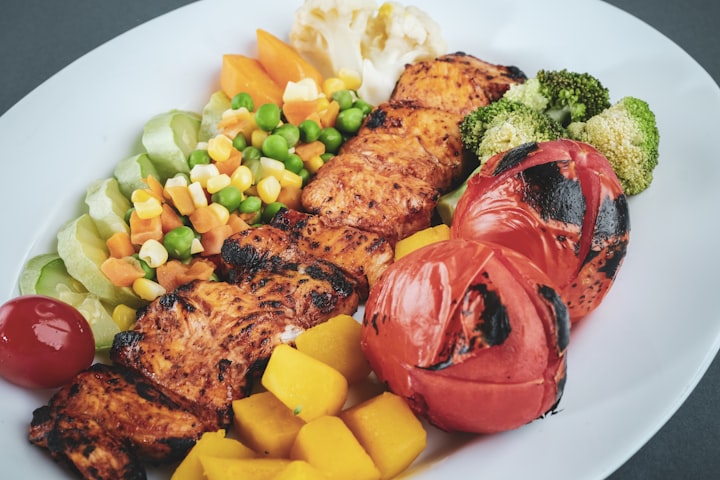
Self-care is the practice of taking care of yourself. It's important to take care of your body, mind, and emotions so that you can be healthy and productive.
I would like to suggest some audiobooks related to this subject for your consideration.
1- Physical Exercise
Physical exercise is an important part of a healthy lifestyle. It provides numerous health benefits, such as improved cardiovascular health, increased muscle strength, and better metabolic health. It can also reduce stress, improve mood, and increase energy levels. Regular physical exercise can help you maintain a healthy weight, improve your overall well-being, and reduce your risk for chronic diseases. You don't have to join a gym or buy expensive equipment to reap the benefits of physical exercise. Taking regular walks or runs in your local park, doing bodyweight exercises at home, or playing an active sport are all great ways to get the physical activity you need. You can increase your physical activity level by taking the stairs instead of an elevator or walking to work instead of driving. If you have the inclination, it could be a good substitute for jumping in front of rush hour traffic! Either way, physical exercise is an important part of living a healthy life.

2- Eat a Healthy Diet
Eating a healthy diet is essential for your overall health and wellbeing. It helps to maintain your weight, reduce your risk of chronic diseases, and provide your body with the vitamins and minerals it needs. To get the most benefit from your diet, it’s important to choose foods that are rich in essential nutrients. Fruits and vegetables are packed with vitamins and minerals, as well as dietary fiber, which can help keep you feeling full for longer. Whole grains are also an important part of a healthy diet, providing essential vitamins and minerals, as well as protein. Eating lean proteins like fish, poultry, and eggs can help to keep your body fueled throughout the day. It’s also important to incorporate healthy fats into your diet, such as nuts, seeds, avocados, and olive oil. Eating a variety of nutritious foods can help ensure that you’re getting all the vitamins and minerals you need to stay healthy. Make sure to limit or avoid processed foods and sugary drinks, which can be high in calories but low in nutritional value. Eating a healthy diet is a great way to support your long-term health and wellbeing.
Please click here for a recommended healthy juice option.
3- Take Time for Yourself
Taking time for yourself is essential to maintaining your self esteem, self love and self acceptance. It's important to recognize that you have the right to take time for yourself and that it's okay to do so. Doing something that brings you joy can be incredibly rewarding and a great way to practice self care. Whether it's going for a walk, reading a book, or even writing in a journal, taking time out of your day to focus on yourself can bring clarity and help to reduce stress. Self care activities can also help improve your mood and make you more productive. There are many different ways that you can take time for yourself, but the most important thing is that it's something that works for you. Taking time for yourself is a great way to practice self love and acceptance and can lead to greater feelings of self worth. Taking the time to focus on yourself can also help you to better understand your needs and desires, as well as make sure that you're taking care of yourself first.
4- Get Some Sleep
Getting enough sleep is essential for your health and wellbeing. It's important to establish good sleep habits to ensure you get the rest your body needs. Establish an immutable sleep cycle by adhering to a fixed wake-up time daily, no matter what day it is. Aim for seven to nine hours of sleep each night. Make sure to turn off all electronic devices at least one hour before bed, as the light from screens can interfere with your body’s natural sleep cycle. Avoid drinking caffeine, alcohol, or eating large meals close to bedtime. Create a comfortable environment in your bedroom, like keeping the temperature cool and blocking out any natural light or noise. Establish a calming bedtime routine that relaxes your body and mind, such as taking a warm bath or reading a book. If you find yourself having difficulty falling asleep or staying asleep, talk to your doctor about potential solutions. Don’t underestimate the importance of sleep in your life – getting enough quality rest is essential for maintaining good health and wellbeing!

5- Relaxation Techniques
If you're feeling overwhelmed and stressed, it's important to take time for yourself to relax and recharge. Stress management is essential for your mental health and self-improvement. Fortunately, there are many relaxation techniques you can use to help you manage stress and feel calmer. Deep breathing can be used to reduce stress and relax your body by slowing down your heart rate and reducing tension. Progressive muscle relaxation involves tensing and relaxing certain muscle groups in a specific order, which can help reduce the physical effects of stress. Meditation is another great way to reduce stress by focusing on the present moment and calming your thoughts. Visualization is a powerful tool to reduce stress that involves imagining yourself in a peaceful, calming place. Listening to calming music can also help relax your body and mind, as well as distract you from stressful thoughts or situations. Lastly, spending time outdoors in nature can also help decrease stress levels and improve your mood. Use these relaxation techniques to help manage your stress levels and improve your overall wellbeing.
Please click here for recommended Yoga online Courses.
6- Meditation or Prayer
When it comes to managing stress, there are many paths to take and it’s important to find the one that works best for you. One way to reduce stress and bring more mindfulness into your life is through meditation or prayer. Meditation and prayer are both excellent tools for stress management, as they offer you the opportunity to focus on being present in the moment and to practice healthy habits. Meditation can be done in a variety of ways, such as breathing exercises, visualization, or mantras, while prayer can be done through many different faiths and spiritual practices. Both meditation and prayer are effective in helping reduce stress and calming your mind, as well as bringing a sense of peace and clarity. Additionally, spending time in meditation or prayer can help you develop a deeper understanding of yourself and the world around you, as it allows you to take a step back from everyday life and really reflect on what matters most. So why not give it a try? Take some time today to focus on yourself, practice mindfulness, and see how meditation or prayer can help you manage your stress.
7- Psychotherapy or Counseling
Psychotherapy or counseling is a type of therapy that helps people work through mental health issues, such as stress, anxiety, depression, and other emotional difficulties. It is a collaborative process between a therapist and a person or couple looking to make positive changes in their lives. The therapist provides support and guidance while the person or couple works to identify and address the underlying causes of their issues. The aim of psychotherapy is to help people gain insight into their behavior and emotions, develop healthier coping strategies, and create more satisfying relationships. Therapists often use a variety of techniques, such as cognitive-behavioral therapy (CBT), psychodynamic therapy, and solution-focused therapy, to assist in the process. Psychotherapy or counseling can be beneficial for anyone experiencing emotional distress due to personal relationships, work-related issues, or life transitions. Through this type of therapy, individuals can gain insight into their feelings, behaviors, and thoughts as well as develop better communication skills and ways of dealing with difficult situations. It is important to find a qualified therapist who specializes in the issues you are facing. With the right approach and support from an experienced therapist, psychotherapy can help individuals improve their mental health and create lasting positive changes in their lives.

8- Social Support System
Social support systems are a powerful tool for helping individuals and communities stay connected and engaged. By providing a platform for communication and connection, social support systems can help individuals and groups stay in touch and remain active even when physical distance may be an issue. They can also provide a sense of continuity and security in times of crisis or other difficult situations. Social support systems can be used in a variety of ways to benefit individuals and communities, such as connecting people with similar interests and experiences, facilitating virtual meetings, sharing resources, and offering support. They can also be used to provide positive reinforcement and encouragement, allowing users to stay motivated and engaged. Additionally, by providing a platform for open dialogue, social support systems can help foster understanding between different groups of people. Social support systems are an invaluable resource that can help individuals and communities stay connected in the face of adversity.
9- Connecting With Others
Connecting with others is an essential part of maintaining good mental health. Having meaningful relationships can help us feel accepted, valued, and understood, as well as provide us with a sense of belonging. Yet, establishing and maintaining these relationships can be challenging. Intimate relationships are important for our emotional well-being, but it’s not always easy to make and keep friends. It takes effort to build social connections and nurture the relationships we have. Here are some tips for connecting with others and improving your mental health: Take initiative; don’t wait for other people to make the first move. Attend events where you can meet like-minded people, such as concerts, classes, or meetups. Join a club or volunteer organization that shares your interests. Take time to get to know someone before passing judgment. Share yourself authentically; be honest about who you are and what you’re looking for in a relationship. Show appreciation and respect for your friends and family members. Make sure to check in with your loved ones regularly and offer them support when they need it. With some effort, you can make meaningful connections that will improve your mental health and help you lead a happier life.
10- Gratitude
Expressing gratitude and appreciation is an important part of life. It can help you to feel more positive, boost your relationships, and even help you to achieve more. Gratitude and appreciation can be expressed in a variety of ways, including verbal appreciation, written notes, and gestures of kindness. Taking the time to express your gratitude and appreciation can not only make someone else feel valued, but it can also provide a sense of satisfaction for yourself. By expressing your gratitude and appreciation regularly, you can create a positive atmosphere that will benefit everyone involved. Showing gratitude and appreciation doesn’t have to be expensive or time-consuming; even small gestures like saying “thank you” or taking the time to listen to someone can make them feel valued. Incorporating gratitude and appreciation into your daily routine can help to increase your overall happiness and satisfaction with life. So take the time to show your appreciation today and make someone else’s day!
Conclusion
Self-care is important for your physical and mental health. It can help you be more productive and happier in life. By taking care of yourself, you'll be able to have more energy to engage in activities that matter most to you.






Comments
There are no comments for this story
Be the first to respond and start the conversation.